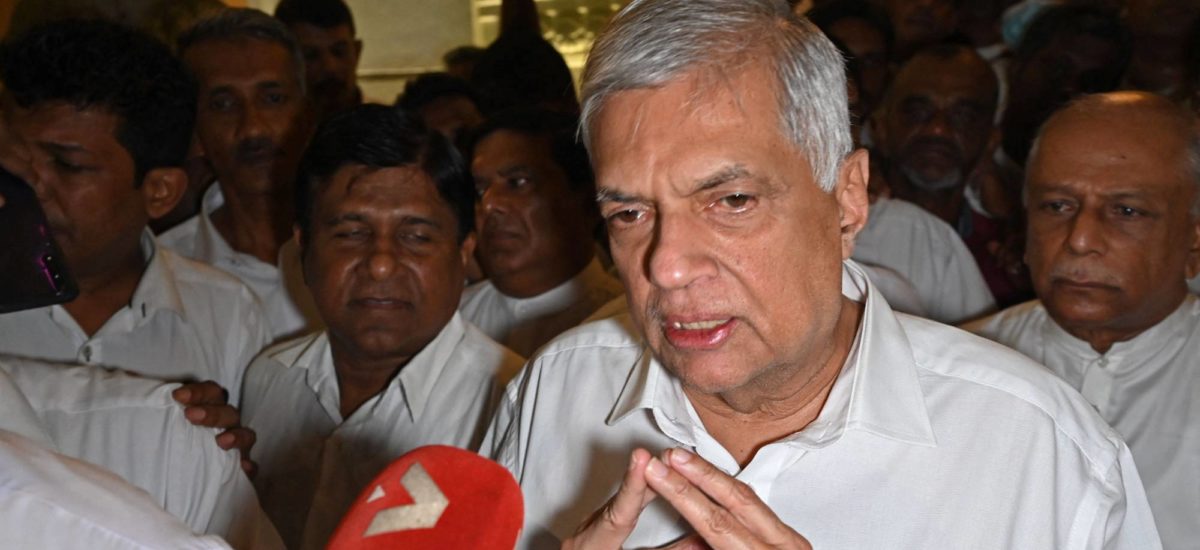Photo courtesy of The Japan Times
On May 12, 2022 the world and the nation was surprised by the appointment of Ranil Wickremasinghe as prime minister of Sri Lanka. Mr. Wickremesinghe’s appointment was historic; it was the sixth time he had served as prime minister. Then a vacuum was created for him to become president, a job he had always coveted. He was elected as the nineth president by an election in parliament on July 20.
Ranil Wickremesinghe’s political career
Mr. Wickremesinghe, 73, is part of an elite, politically connected family. He served his first stint as prime minister after President Ranasinghe Premadasa was assassinated in May 1993 and D. B. Wijetunga took over the presidency. Soon afterwards, the UNP faced an electoral defeat and Chandrika Bandaranaike Kumaratunga became president. Subsequently, Mr. Wickremesinghe became the leader of the opposition and was prime minister again in 2000 under the presidency of Mrs. Kumaratunga. They had a strained relationship during this period of cohabitation, resulting in Mrs. Kumaratunga taking control of key ministries previously under the parliament and calling for early elections.
When Mr. Wickremesinghe contested the presidency in 2005, he narrowly lost to Mahinda Rajapaksa by about 150,000 votes. One of the main reasons for this outcome was that the LTTE forcibly prevented voting from taking place in the Northern and Eastern provinces, areas where Mr. Wickremesinghe was expected to win.
In 2015, Mr. Wickremesinghe entered into a coalition with a breakaway faction of the ruling regime with then SLFP General Secretary, Maithripala Sirisena, becoming president in January 2015. However, once in power, a number of disputes emerged within the political leadership and the strained relationship between the two could not last. Soon afterwards, Mr. Wickremasinghe was illegally sacked by President Sirisena, triggering a constitutional coup and a chaotic political situation. He became prime minister again after being appointed in May 2022. It is against this track record that Mr. Wickremesinghe was sworn in as president on July 21.
Six times lucky?
Soon after taking office as prime minister in May 2022, Mr. Wickremesinghe gave an interview to the BBC where he conceded that he faced a difficult job and that things would get worse before getting better. “It’s a challenge but I am going to meet this challenge somehow,” he said, adding that he would work towards securing financing through negotiations with the IMF and friendly nations, especially neighbouring India.
After taking over he appointed Dinesh Gunewardena as prime minister, who is seen as a stable, sensible choice.
President Wickremesinghe faces enormous challenges. On the economic front, the situation is worsening rapidly with food inflation having surpassed 90%. President Wickremsinghe has to stabillize the economy in the short run and deliver rapid results in a short period of time. Even a critic has to sympathize with the impossible task he has been set with – to pull up an economy that is too far down the rabbit hole. The political situation has not altered; protests continue and ordinary people, in particular the rural population, are acutely affected by the financial difficulties of soaring food and commodity prices due to hyperinflation. The fuel queues continue and there has been no respite in terms of the debt situation.
In lieu of a conclusion
The introduction of Ranil Wickremesinghe as the nineth president is a complex phenomenon, which is difficult to read or make predictions on. He needs to act urgently and swiftly to rectify the economic crisis and put the country onto a stable, forwardlooking trajectory.
The writer can be contacted at [email protected]


